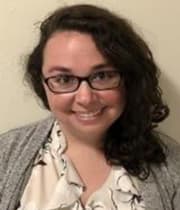Mom thanks MultiCare hospitals for her son’s recovery and resilience following overdose

On January 25, 2016, Gretchen Engle got a call that every parent of someone with a substance use disorder fears — her son, Avery Winslow, had overdosed.
Avery had been through 10 years of unsuccessful treatment attempts and was couch surfing and living in his car leading up to his emergency stay at MultiCare Tacoma General Hospital. He spent 11 days in a coma-like state at the MultiCare Tacoma General Hospital Intensive Care Unit (ICU), having suffered a traumatic brain injury (TBI).
During those 11 days, “no one ever said to me, ‘It’s time for it to be over’ or ‘It’s time to give up,’” Gretchen recalls. “During my experience at Tacoma General, I never heard a single doctor or nurse condescend to him or act like he wasn’t worthy of care.”
“Avery was in bad shape in neuro ICU; he was in and out of a coma and constantly extremely agitated,” Avery’s doctor, Kenneth Ejiogu, MD, FACP, adds. “As the days rolled by with no improvement, it would have been easy to write off his prognosis as extremely bleak. But he was young and had an extremely supportive Mum, so we persisted and eventually he started making slow but consistent progress.”
While at the ICU, Avery and Gretchen saw firsthand the impact of donor generosity. The group of specialized ICU caregivers who helped Avery receives ongoing training thanks to donor support. MultiCare Health Foundation supports ICU caregiver education so that they may continuously learn the best practices for compassionate, innovative care.
Gretchen was also able to find respite from the ICU’s beeps and machines in the light-filled ICU waiting room, remodeled through donor investments.
After waking from his coma, Avery began the long road of recovery. He spent several more weeks at Tacoma General, and the going was tough. As a result of his TBI, Avery couldn’t walk or use his arms to feed himself, and he had to work to stretch out his limbs.
But through it all, Avery’s medical team remained a source of encouragement.
“During that stay, I would run across a CNA or a nurse when I was down in the lobby,” Gretchen says. “They would hug me and say, ‘We’re thinking about you.’ Everybody involved with his care was great.”
Next steps at Good Samaritan Regional Rehabilitation Center and beyond
Avery continued his way forward with rehabilitation at MultiCare Good Samaritan Hospital.
“He loved everybody there — he was their smiley guy,” Gretchen says. “They taught him how to walk again, and they worked with him on speech therapy, physical therapy, occupational therapy.”
The Good Samaritan rehabilitation team also helped Avery with practical and lifestyle skills. With their assistance, he learned how to manage money by counting coins, mastered how to use stairs, took field trips to the store and more.
In March 2017, Avery moved into a group home built for TBI survivors. He found comfort among his housemates and joined a relapse prevention program with one-on-one therapy every week and group therapy sessions. In less than a year, Avery could navigate the Seattle bus system, had become a prolific reader and his neuro-psych exam showed incredible improvement.
“Most importantly, he is in the process of self-examination and self-realization,” Gretchen shares. “He is learning about who he really is, what is truly important in his life and is coming to terms with his addiction and the fallout from it. He readily acknowledges that the overdose changed his life in a good way.”
Celebrating Avery’s rebirthday
January 25, 2021 will mark five years since Avery’s overdose, a recovery milestone. Every year, Gretchen and Avery celebrate this day as a birthday of sorts. It’s the day that Gretchen got her son back and the day that Avery considers himself to have been reborn.
“To this day, I’m thankful for Tacoma General,” Gretchen says. “My mom was born at Tacoma General, she became a nurse at Tacoma General during World War II and all of my six siblings and myself were born at Tacoma General. They returned the son I knew. He is my lost sheep, saved by paramedics and an entire hospital system intent on saving his life.”
Gretchen further extends her gratitude to the many donors that support high quality health care for all.
You “all are helping to create a better society,” she says. “A healthy community benefits all of us: more people being productive at work, fewer sick people infecting others, fewer financial catastrophes, increased wellness and mental health. Everyone needs and deserves good health care.”




